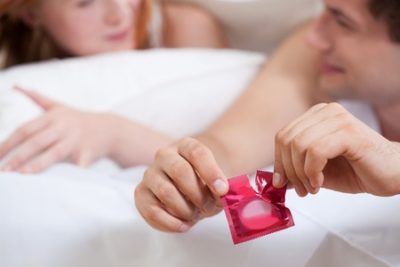Un Protected SEX & STD’s – Time Period For Each STD Check
Everyone has seen a chart or “spider-gram” that illustrates how quickly STDs can spread through populations. The STD exposure rates among people who regularly engage in unprotected sex are exponentially higher. The most common diseases contracted from unprotected sex do not manifest at the same rates. Initial screening, and subsequent retesting is the only ways to positively identify the presence of an STD, and begin management regimens.

Some STDs can be detected with OTC products, but clinical testing is the surest method. Many medical services are available for people who engage in unprotected sex to monitor their status. These include,
* Rapid STD Testing
* STD Check
Chlamydia
The earliest Chlamydia can be detected is on the first day of exposure. There is an average incubation period of 5 days. After an initial test, a second test should be taken 2 weeks later to make sure there is no disease present.
Gonorrhea
To detect Gonorrhea, a first test should be taken 2-6 days after exposure. Like many readily treatable STDs, if a test is administered before this period has past, a second test two weeks later should follow. This helps eliminate unsure results.
Syphilis
Syphilis has a long incubation period before it can be truly detected, or eliminated as being present. Undergo a test only 2-6 weeks after exposure. A post-treatment test should also be taken after 2 weeks.
Hepatitis A
This virus infecting the liver is detectable after a 2-7 week incubation period. It’s a tricky STD because not everyone will experience classic symptoms. Once Hepatitis A is confirmed positive, a person will have it for their entire life, and will likely require medical management.
Hepatitis B
Hepatitis B stays in a person’s system for life. It is contracted from exposure to body fluids, radically affects the liver, and can be passed from mothers to unborn babies. A period of 6 weeks is necessary to positively identify its presence after exposure. Positive diagnosis eliminates the need for future testing.
Hepatitis C
People exposed to HCV should wait 9 weeks to take a test for detection. Flu-like symptoms are common, which leads many people to assume they do not have this destructive virus. Full symptoms occur sometimes years after exposure. HCV can sometimes be treated with medication, so a retest should be taken 3 months after a positive detection.
Oral Herpes
Also known as HSV-1, this virus has an incubation period of up to 6 weeks. If results are positive, it is for life. If initial test results are negative, a following test should be taken 3 months later to confirm.
Genital Herpes
HSV-2 should be treated like HSV-1. Wait 6 weeks for an initial test. If positive, begin lifetime management procedures. If negative, retest 3 months later.
HIV (HIV Antibody Test Method)
A long incubation of 3 months makes it important to seek treatment immediately after a first test positive result. If a person knows they were exposed to this virus, a second test should be taken 1 month later to confirm either positive, or negative results.
HIV (HIV RNA Test For Early Detection)
Early detection of HIV is possible from 9-11 days after exposure. RNA testing detects the virus at the genetic level. This eliminates the need to wait for an incubation period, or until symptoms start. Anyone knowing they were exposed to HIV should consider a series of tests to confirm all initial detection results.